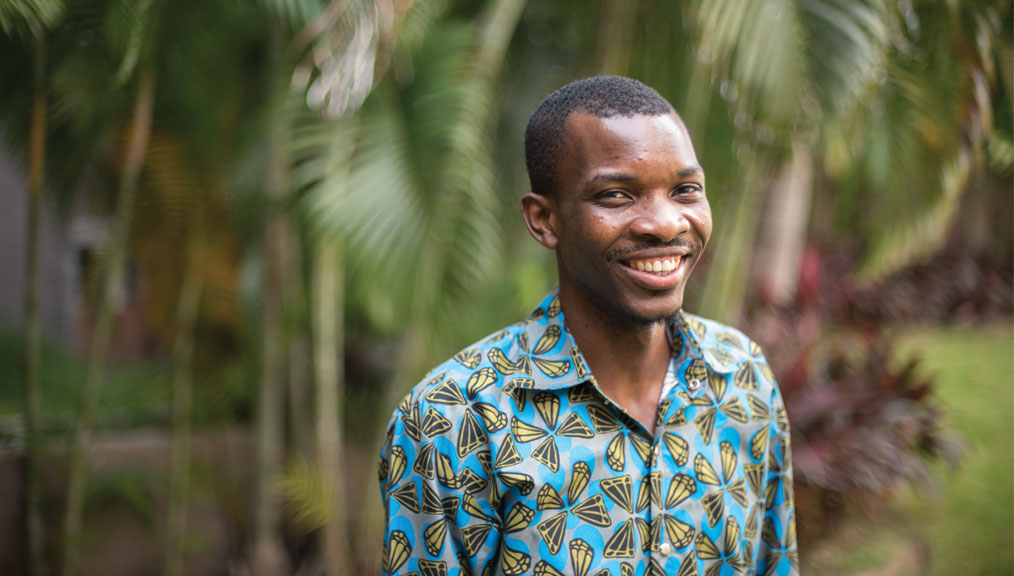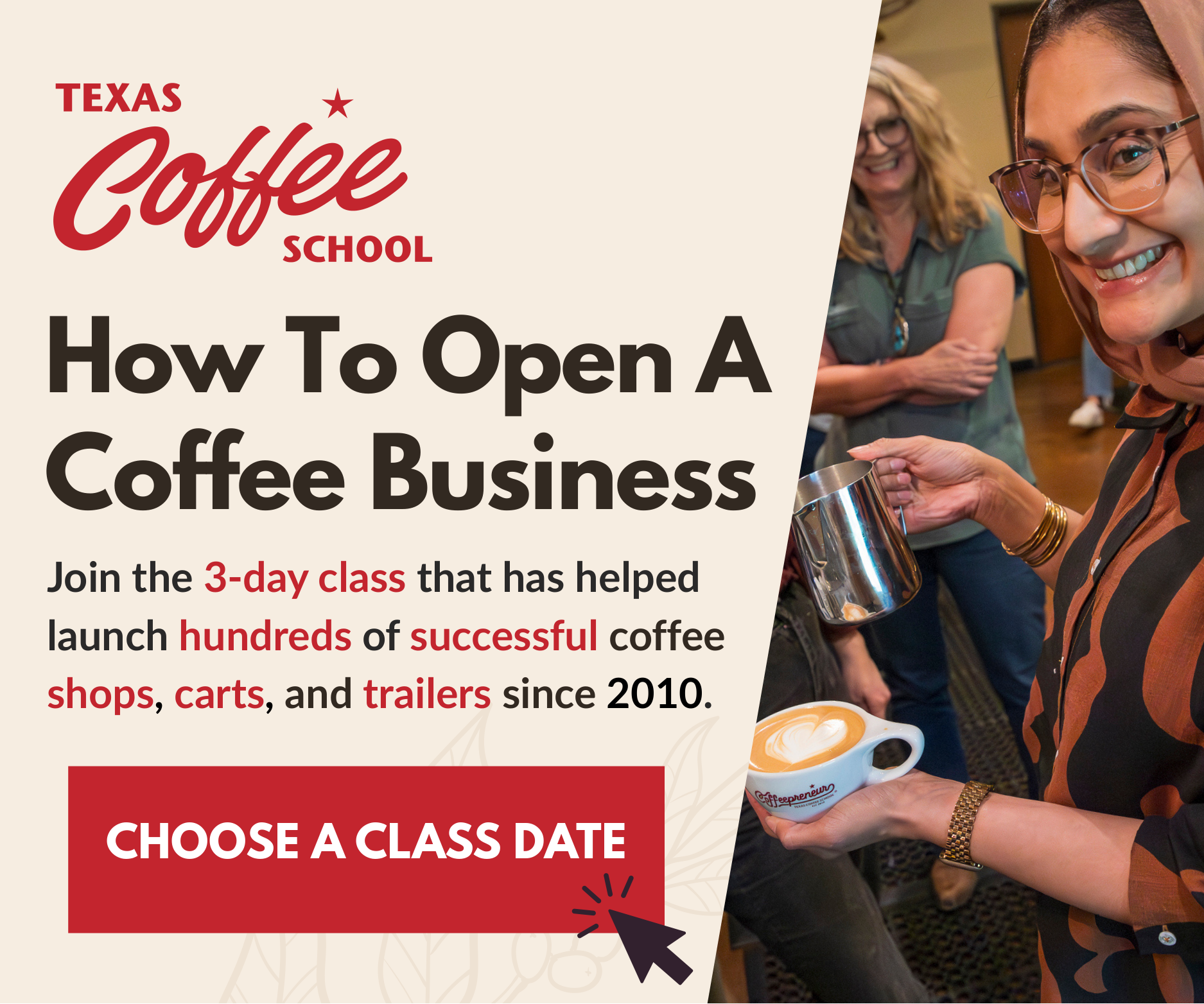Photo: Bryan Clifton.
[W]hen Dan Sibomana got the e-mail that he’d been invited to Let’s Talk Coffee as a guest of Sustainable Harvest, Equator Coffees, and Boot Coffee, he says it was like a dream come true. Sibomana had never been on a plane—he’d never even traveled out of his home country of Rwanda. Sibomana attended the Let’s Talk Coffee conference in Puerto Vallarta, Mexico, in October, followed by a couple weeks in the Bay Area training in both retail and roasting, including an SCAA Roasting Level 1 course.
Sibomana manages the Kigali outpost of Question Coffee, owned by Sustainable Harvest. Dan first came into coffee working as a cleaner for Bourbon Coffee, where he eventually learned to roast. He’s now educating a new generation of coffee professionals in Rwanda, helping bridge the gap between farm and café.
This interview has been edited for clarity and space.
How did you come to work in coffee?
I had the dream of going to school to study business—I wanted to be an entrepreneur. That was my dream, but it didn’t work, so I started working in the roasting room at Bourbon Coffee. My first job was as a cleaner. I eventually got to work in the roasting room, keeping track of numbers, how much had been roasted and how much had been delivered to stores.
So that’s where you learned to roast?
Yes, I met a guy named Jeff. He told me, ‘Dan, this work is very important and can change your life.’ So he trained me. He had me watch him roast so I could learn what to do. After he left I became the head roaster.
How long were you with Bourbon?
Four years. I was really interested in what the baristas were doing. When I was roasting, I wasn’t able to meet customers; I was really interested in meeting customers, to figure out what they liked. I had some skills on the espresso machine, so I got a job at a hotel in Kigali where I was a barista. I wouldn’t say I was the best barista, but I could talk coffee and everyone was amazed on how I was able to explain coffee and the value chain, so that’s how I was able to pass the interview.
Tell me how you got connected with Sustainable Harvest.
I worked at the hotel for about a year, then went to work in a more rural area where I was giving coffee tours and 95 percent of the guests were foreigners. I would brew coffee using the french press. This is where I met Marcus [Young]. He really liked me, he asked me to make coffee. I did my best, I didn’t have equipment to make good coffee, but through the french press I brewed a coffee that he liked and he asked me if I could join Sustainable Harvest. By that time, I wanted to go back to the city where I could meet people. I was really interested in getting involved with how coffee was being consumed in the city, how companies were roasting. I said to him ‘yes I can work in Kigali.’
What did you learn when you came to Sustainable Harvest?
Marcus trained me. I had no idea how strict espresso was. He trained me how to make a delicious cup of coffee, how to taste flavors in coffee—the acidity, body, sweetness—he trained me on the taste of good espresso. Through his training, it was also my job to make sure the wholesale customers were doing the same as I was learning.
What was your role when you first came to Question Coffee in Kigali?
I had the responsibility of taking care of retail customers, making their drinks, making sure they get the story about our coffee, who brews our coffee, why our coffee is good, what makes our coffee taste delicious. I tell the story of how we are trying to support women coffee cooperatives. I changed from the role of barista trainer and now I focus on retail customers and managing the café. Currently we have a new wholesale trainer. She’s an amazing woman, she’s doing a great job.
Now that you’re managing the café, what are things you’re trying to do to teach the local community about coffee?
I have three main things I’m trying do. First, I want my fellow baristas to get the basic knowledge in coffee, to know the quality, to know how to serve, to get the story about the beans they are serving. Another thing I’m trying to do is make sure at least in the local market, people have knowledge on what the best coffee tastes like. I want to make sure at least Rwandese who walk in our café walk out with a new experience of coffee. I will do that through training, asking questions. If I hear how he feels or understands coffee, that will give me guidance on how I can help. Another thing is cupping. It’s hard to tell someone a coffee smells like chocolate or berries, or tastes like caramel, or has a high acidity, or is well-balanced. I saw something this week at Let’s Talk Coffee that was really helpful for me—the triangulation tasting. It’s fun, but you learn a lot. I will talk to my director to see how this kind of cupping can motivate people to get interested in cupping.
What other things have you taken away from your time at Let’s Talk Coffee?
There are people here who I only knew on social media that I finally got to meet face to face. We took photos, we shared tequila, we danced. It was such a pleasure.














